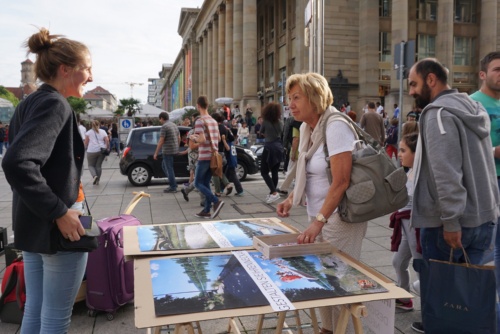|
INSTITUT FÜR LANDSCHAFTSPLANUNG UND ÖKOLOGIE
TIME:
Tuesdays, 09:45 - 17:15 h
ROOM:
K1, IUSD Studio, 8.04 START:
10.04.2018, 09:45 h LECTURERS:
Prof. Dr. Astrid Ley, Vertr. Prof. Dr.-Ing. Jan Dieterle, Franziska Laue, Nicole Meier |
|
 |
|
|
TOPIC |
|
|
Stuttgart is the sixth largest German city and its metropolitan area is the country’s fourth largest. It provides its citizens with a high quality of living, nevertheless, there are challenges that need to be adressed in order to find a sustainable vision for the city. How can Stuttgart become a socially just, culturally diverse and ecologically responsible city? A first approach is the SDG-campaign „mEin Stuttgart – mEine Welt“ launched by the City of Stuttgart and its co-operation partners. It is based on the 2030 Agenda for Sustainable Development published by the United Nations in 2015. The IRD II project will be in co-operation with the city’s SDG-campaign in order to give students the chance to participate in a real life work experience. The Integrated Research and Design Studios (IRD) aim to involve students in complex and transdisciplinary projects allowing for creative and strategic alliances and relationships among various stakeholders. These alliances are seen as the basis for innovative environmental and urban planning approaches. The course is designed to prepare the next generation of urban practitioners to integrate new modes of research and design into practice. In the course of this project, we will analyse the city center of Stuttgart and its urban, social and infrastructural fabric. We will look into the topics of climate, energy, land-use, current statistics, and include policy, planning and participation under the headline of strategic development concept. The main focus is to develop strategies that help to transform the city center into an attractive quarter that provides for a healthy community within a sustainable urban environment. This module seeks to foster the following issues: |
|

